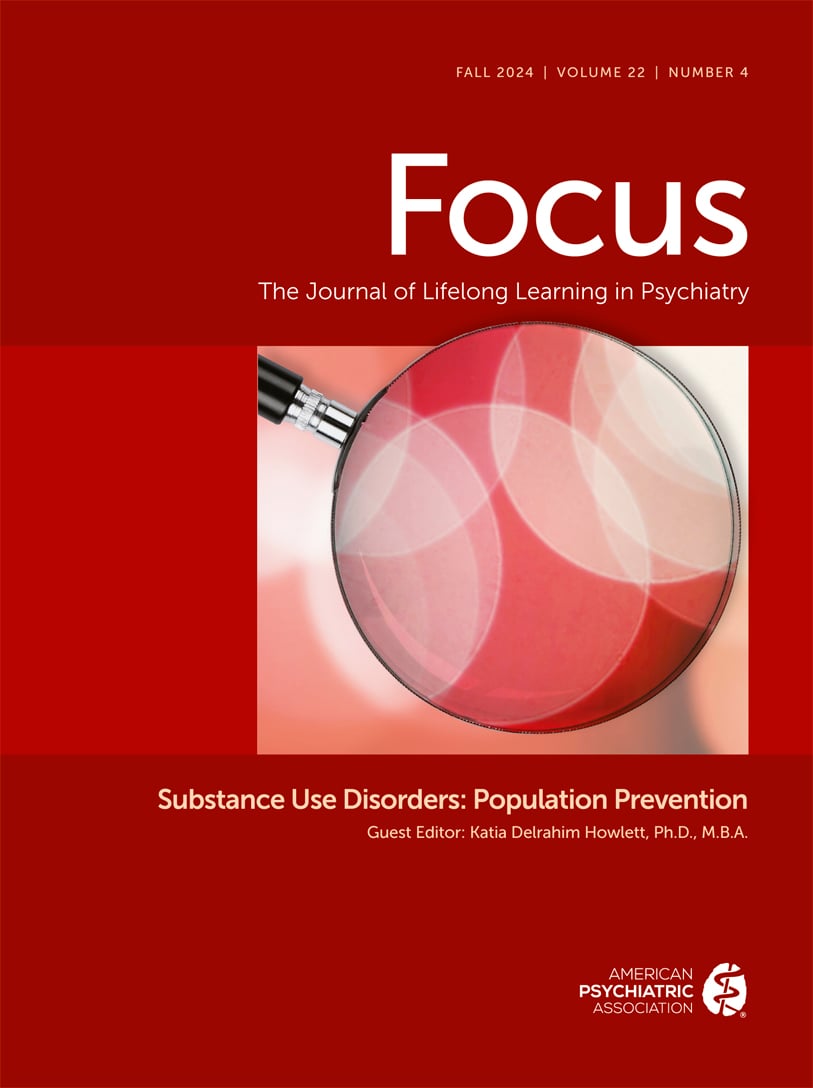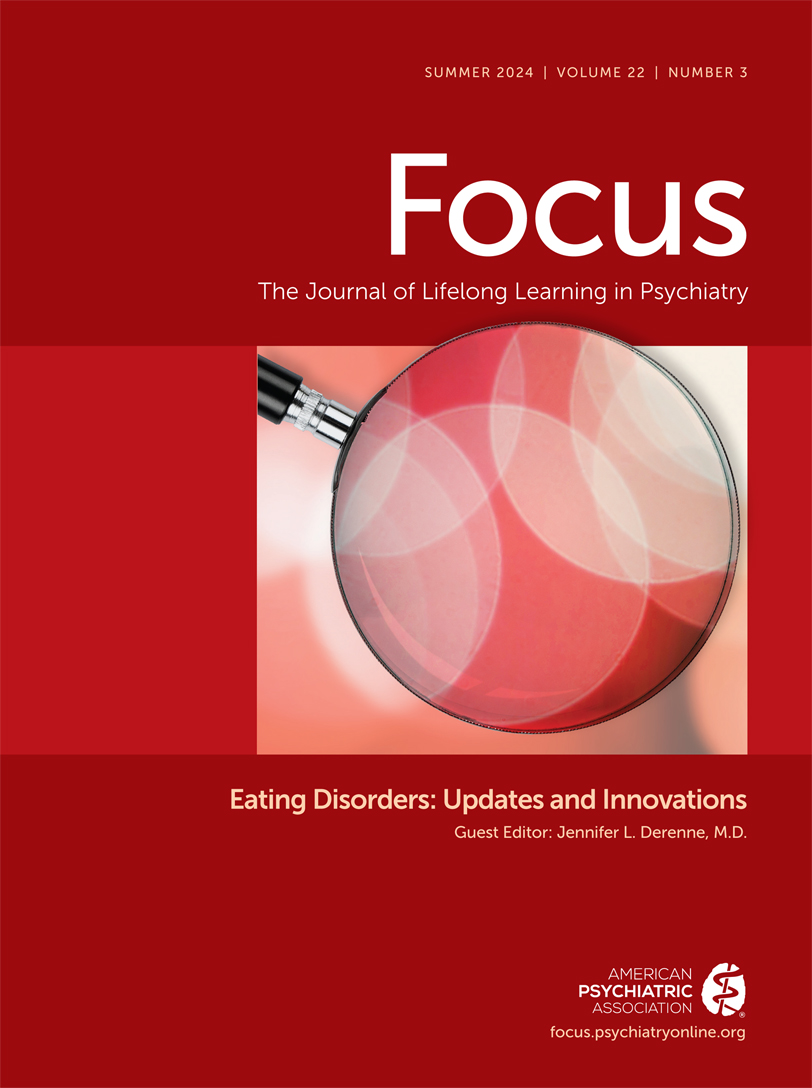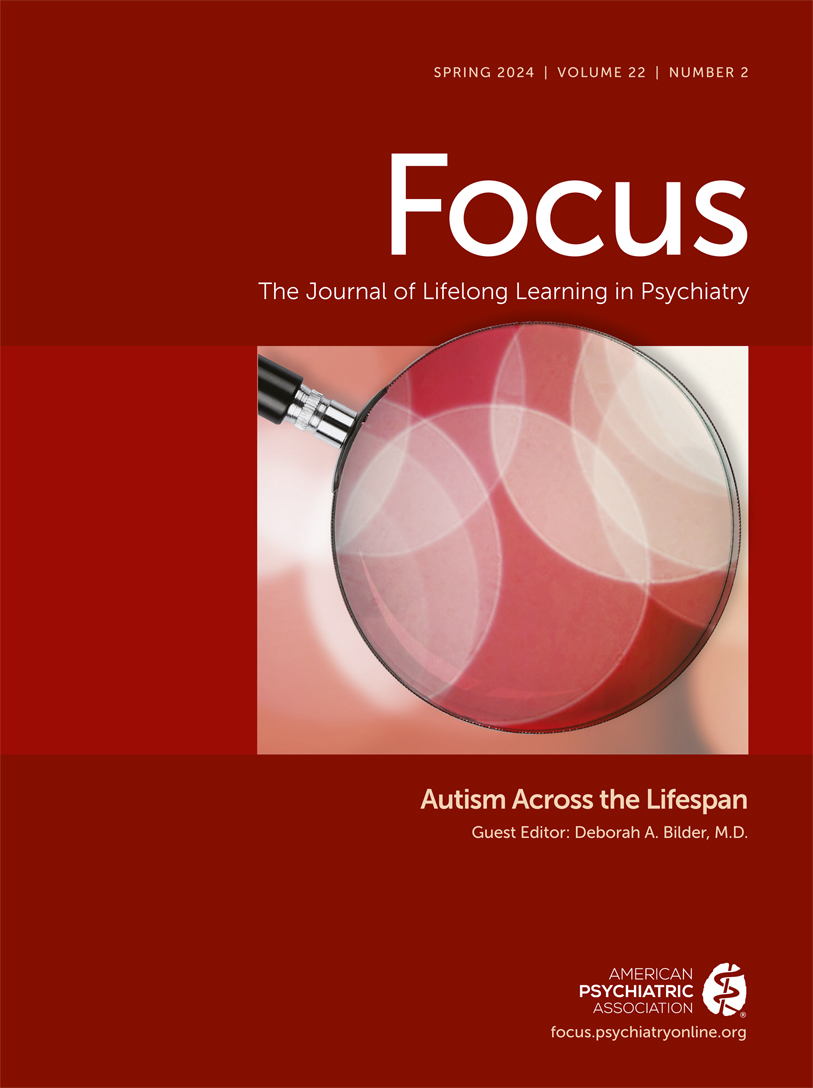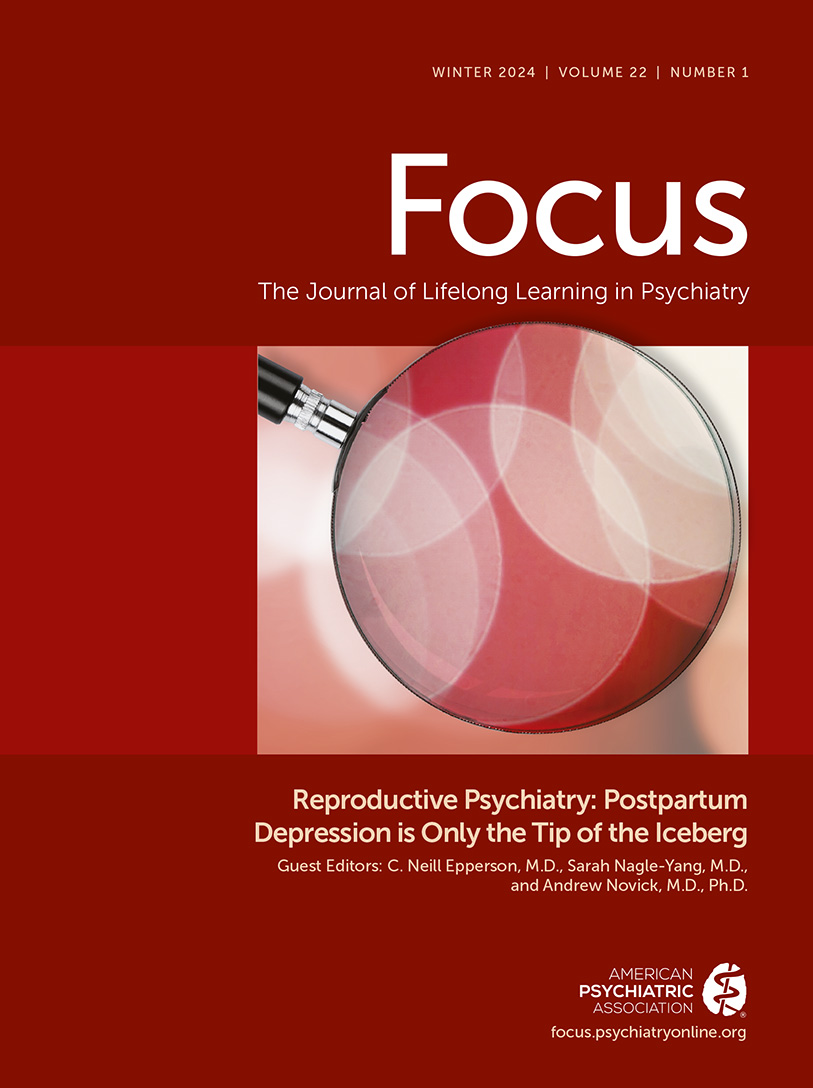Focus
- Volume 11
- Number 4
- October 2013
From the Guest Editor
Clinical Synthesis
Publication date: 01 October 2013
Pages441–449Psychiatric consultation in the general hospital differs greatly from consultation in psychiatric clinics or private offices due to the nature of the patients’ medical illnesses and the physical setting of the hospital. This review highlights these ...
https://doi.org/10.1176/appi.focus.11.4.441Publication date: 01 October 2013
Pages450–459Depression is highly comorbid with various malignancies, and when present often increases suffering, decreases medical adherence, and can be associated with worse clinical outcomes. Widely available screening instruments such as the PHQ-9 have ...
https://doi.org/10.1176/appi.focus.11.4.450Publication date: 01 October 2013
Pages460–470Psychiatrists working with transplant populations need to understand the organ transplant process, transplant-specific psychosocial issues, and the medical complexity of organ transplant candidates and recipients in order to provide appropriate ...
https://doi.org/10.1176/appi.focus.11.4.460Publication date: 01 October 2013
Pages471–481Treatment advances have resulted in the creation of large numbers of cancer survivors, and to the recognition that cancer is now often a chronic, rather than acutely life-threatening, illness. Evolution of our scientific and clinical understanding of the ...
https://doi.org/10.1176/appi.focus.11.4.471Publication date: 01 October 2013
Pages482–500With the shifting demographic pattern toward more aged individuals, more physicians will be needed who have competency in the differential diagnosis for cognitive impairment. Psychiatrists who can evaluate patients for mood and different cognitive ...
https://doi.org/10.1176/appi.focus.11.4.482Publication date: 01 October 2013
Pages501–508The integration of behavioral health and primary care has become an increasingly important topic, with health care reform placing new emphasis on providing care that meets the spirit of the “Triple Aim”: better clinical outcomes, cost containment, and ...
https://doi.org/10.1176/appi.focus.11.4.501Publication date: 01 October 2013
Pages511–515Psychiatrists who practice in medical settings are often called on to provide their recommendations in medical situations with challenging ethical dilemmas. Although not necessarily trained ethicists, psychiatric consultants are often expected to be ...
https://doi.org/10.1176/appi.focus.11.4.511Publication date: 01 October 2013
Pages516–520This exercise is designed to test your comprehension of material presented in this issue of FOCUS as well as your ability to evaluate, diagnose, and manage clinical problems. Answer the questions below, to the best of your ability, on the information ...
https://doi.org/10.1176/appi.focus.11.4.516Publication date: 01 October 2013
Pages525–527In DSM-5, somatoform disorders are now referred to as somatic symptom and related disorders. In DSM-IV, there was significant overlap across the somatoform disorders and a lack of clarity about their boundaries. These disorders are primarily seen in ...
https://doi.org/10.1176/appi.focus.11.4.525Influential Publications
Publication date: 01 October 2013
Pages534–543Objective To determine the frequency, risk factors, course and outcomes of subsyndromal delirium (SSD) in older people by systematically reviewing evidence on these topics. Methods Subsyndromal delirium was defined as the presence of one or more symptoms of ...
https://doi.org/10.1176/appi.focus.11.4.534Publication date: 01 October 2013
Pages544–551Background Delirium commonly occurs in hospitalized elderly patients, resulting in increased morbidity and mortality. Although evidence for treatment of delirium exists, evidence supporting pharmacologic prevention of delirium in high risk patients is ...
https://doi.org/10.1176/appi.focus.11.4.544Publication date: 01 October 2013
Pages552–567Objective Collaborative chronic care models (CCMs) improve outcome in chronic medical illnesses and depression treated in primary care settings. The effect of such models across other treatment settings and mental health conditions has not been ...
https://doi.org/10.1176/appi.focus.11.4.552Publication date: 01 October 2013
Pages568–575Background The prevalence of delirium has been estimated at anywhere between 10% and 30% in general medical patients and in upwards of 80% in patients who are admitted to an intensive care unit (ICU). Given the high prevalence of delirium in the ICU ...
https://doi.org/10.1176/appi.focus.11.4.568Publication date: 01 October 2013
Pages576–587Background Dignity therapy is a unique, individualised, short-term psychotherapy that was developed for patients (and their families) living with life-threatening or life-limiting illness. We investigated whether dignity therapy could mitigate distress or ...
https://doi.org/10.1176/appi.focus.11.4.576Publication date: 01 October 2013
Pages588–593(Reprinted with permission General Hospital Psychiatry 2011; 33:305–310)
https://doi.org/10.1176/appi.focus.11.4.588Publication date: 01 October 2013
Pages594–599Background Requests for evaluation of mental capacity in general hospitals have increased in frequency. Objective The authors sought to determine the interventions required to respond adequately and assess the initiating circumstances. Method Questionnaires ...
https://doi.org/10.1176/appi.focus.11.4.594Past Issues
View Issues Archive
Vol. 22 | No. 4

Vol. 22 | No. 3

Vol. 22 | No. 2
